Community is Our Superpower: Reflecting on World Refugee Week with Caring and Sharing Rochdale
Celebrating the Refugee Week at our Hub
Celebrating the Refugee Week at our Hub
In a world full of complicated problems, it’s easy to forget the simplest truths.
At Caring and Sharing Rochdale, we haven’t just read about injustice. We live in it. We walk beside it. We sit across from it, hold its hand, and try, day in and day out, to remind people that they still matter, even when the system tells them otherwise.
And through it all, one thing keeps showing up, louder and clearer every day: Community might not just be part of the answer. It might be the answer itself.

It is Happening Here in Rochdale
Rochdale has always been a place of welcome. A place of grit, resilience, and spirit.
We’ve seen this town hold space for people who’ve lost everything. We’ve seen Rochdale aunties offer up hot meals to women fleeing violence.
We’ve seen grandads, former engineers, teaching newly arrived refugees how to fix bikes or use a computer.
We’ve seen real love, the quiet kind–not loud on social media but deep in action.
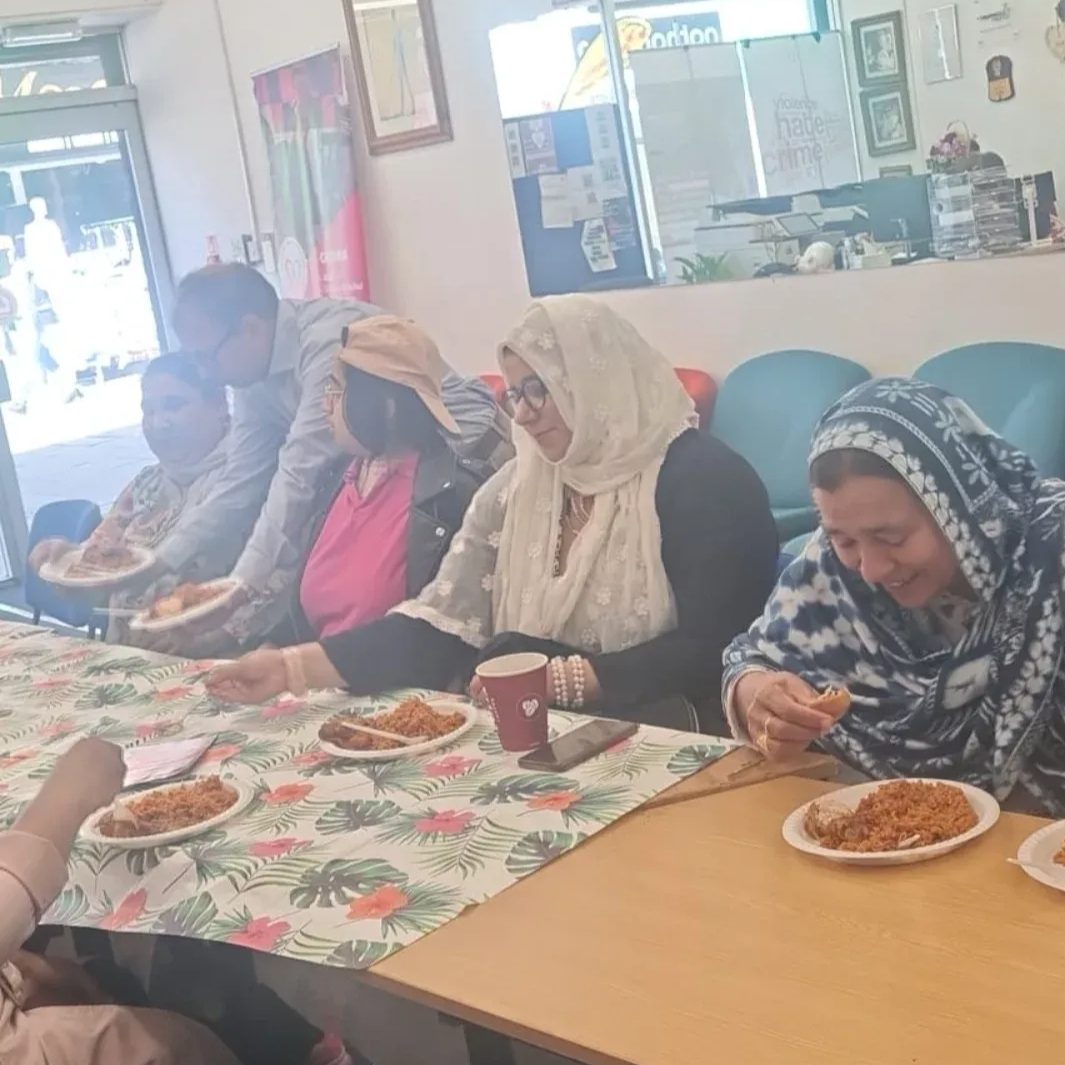
This is what a community looks like. And it’s not charity. It’s solidarity.
The Work Doesn’t Belong to “Us”—It Belongs to All of Us
Here’s the thing: the work we do at Caring and Sharing isn’t for a niche few. It’s not “those people” over there. This is about us–every single one of us. Whether you’re a local business owner, a parent, a student, or a neighbour who just cares.
The world tells us to look away.
We’re saying: lean in. Because if a community is going to heal anyone, it has to be built by everyone.
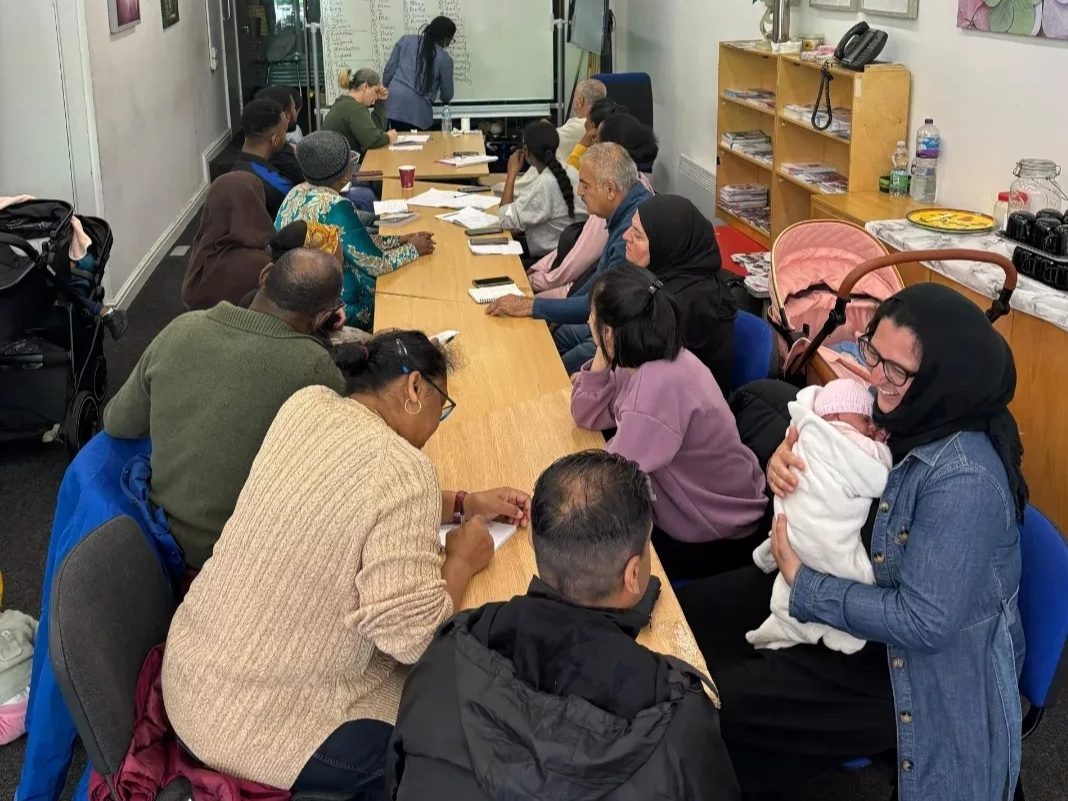
Don’t Just Clap for the Work, Join It
We don’t need more applause. We need more action.
Volunteer. Give your time, not just your opinion.
Speak up when systems fail our neighbours.
Share your skills, your networks, your table.
Create safe spaces—not just in buildings, but in how you treat people.
Let the way you live reflect the world you claim to want.
Rochdale can’t do it alone. And we shouldn’t have to.
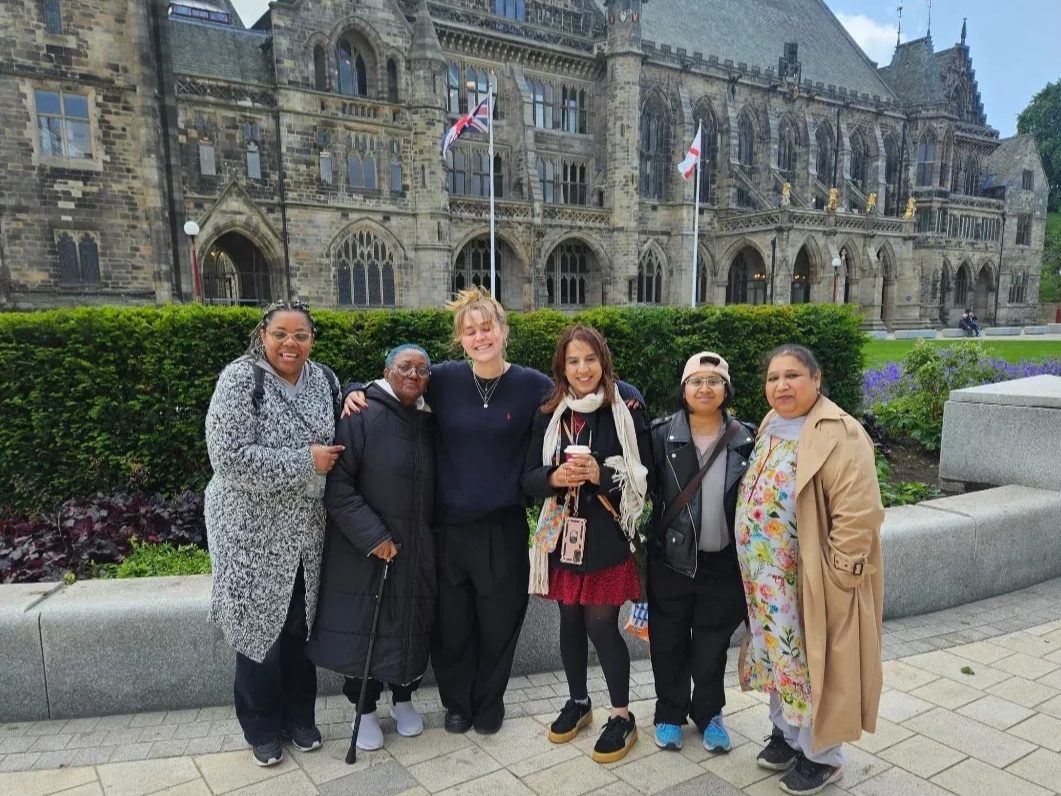
What If Rochdale Is Just the Beginning?
What if the model we’re building here, community by community, block by block, isn’t just local hope, but global proof?
What if every town had Caring and Sharing?
What if governments, schools, and corporations followed the lead of grassroots love and leadership?
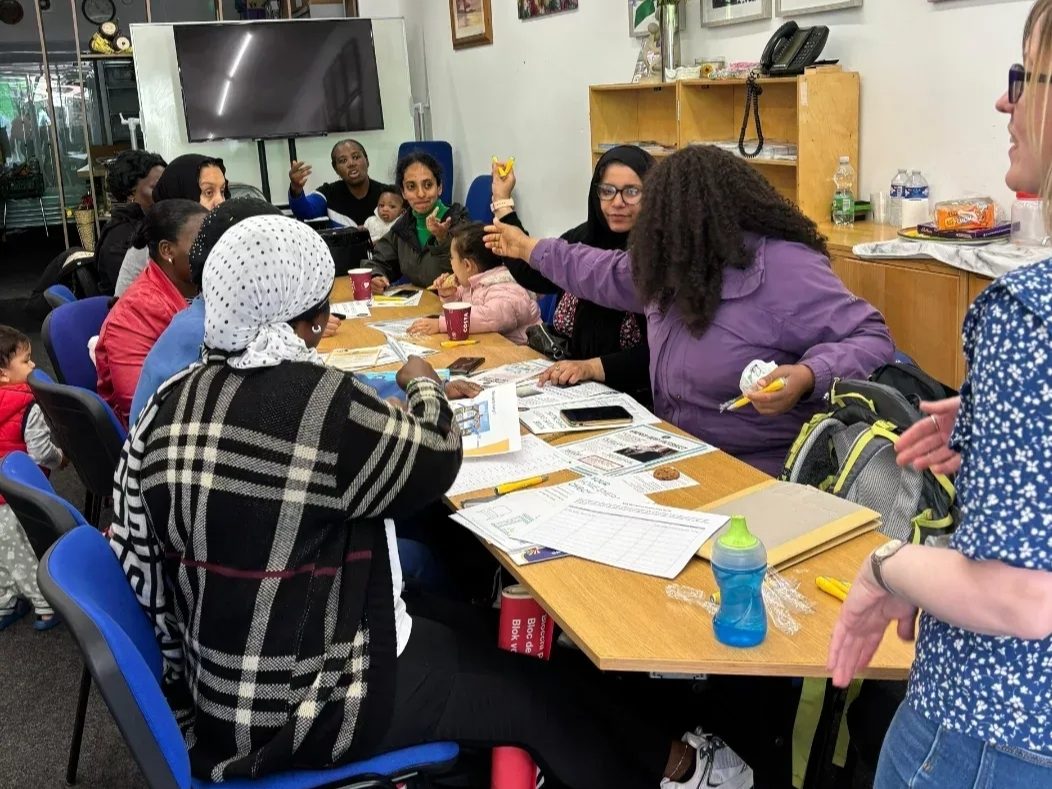
Because if it can work in Rochdale, with all its challenges, all its beauty, all its stubborn, scrappy heart, it can work anywhere. And maybe, just maybe, this is the movement the world has been waiting for.
So Here’s the Real Question:
What role will you play in building the world we keep saying we want?
Because community?
It doesn’t build itself.
We do.
When people talk about “starting over”, it often sounds inspiring, like a clean slate, a fresh chapter, a moment of empowerment. But for many survivors of domestic abuse and exploitation, especially those with uncertain immigration status, starting over isn’t just difficult, it’s dangerous, confusing, and deeply isolating.
At Caring and Sharing, we see this reality every week in our Immigration Drop-In Support Sessions. Women (and men too) show up carrying invisible scars. Some have fled violent partners. Others have escaped forced labour or trafficking rings. And nearly all of them are navigating a system that, frankly, doesn’t always know how to care for them properly.
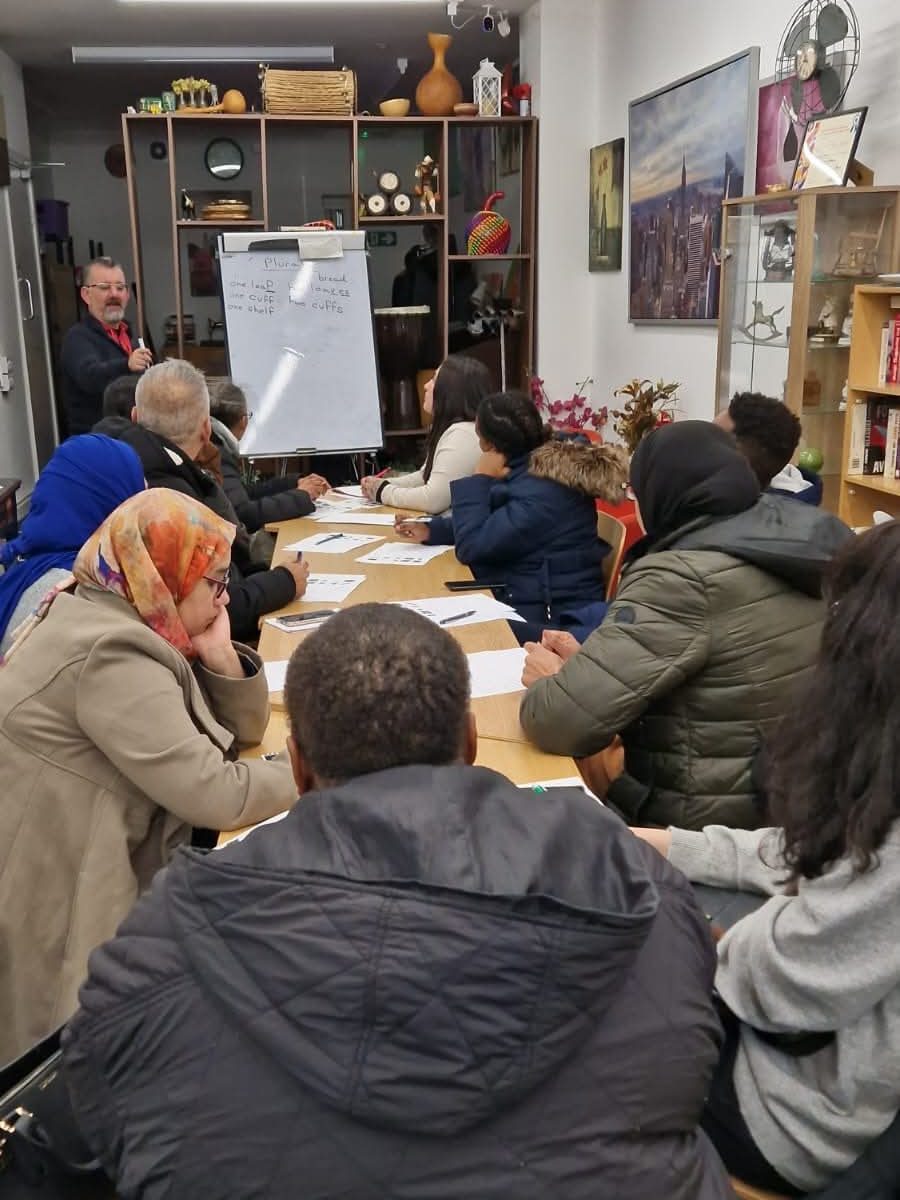
When Safety Comes at a Cost
One of the cruelest ironies for survivors with insecure immigration status is that seeking safety can actually put them at further risk. Imagine finally finding the strength to leave a harmful situation, only to realise that:
That’s not freedom. That’s fear in a new form.
And let’s not forget language barriers, cultural stigma, and the very real threat of retribution from traffickers or abusive partners. Survivors often live in silence because speaking up feels like stepping into even more uncertainty.
“But why didn’t they leave sooner?”
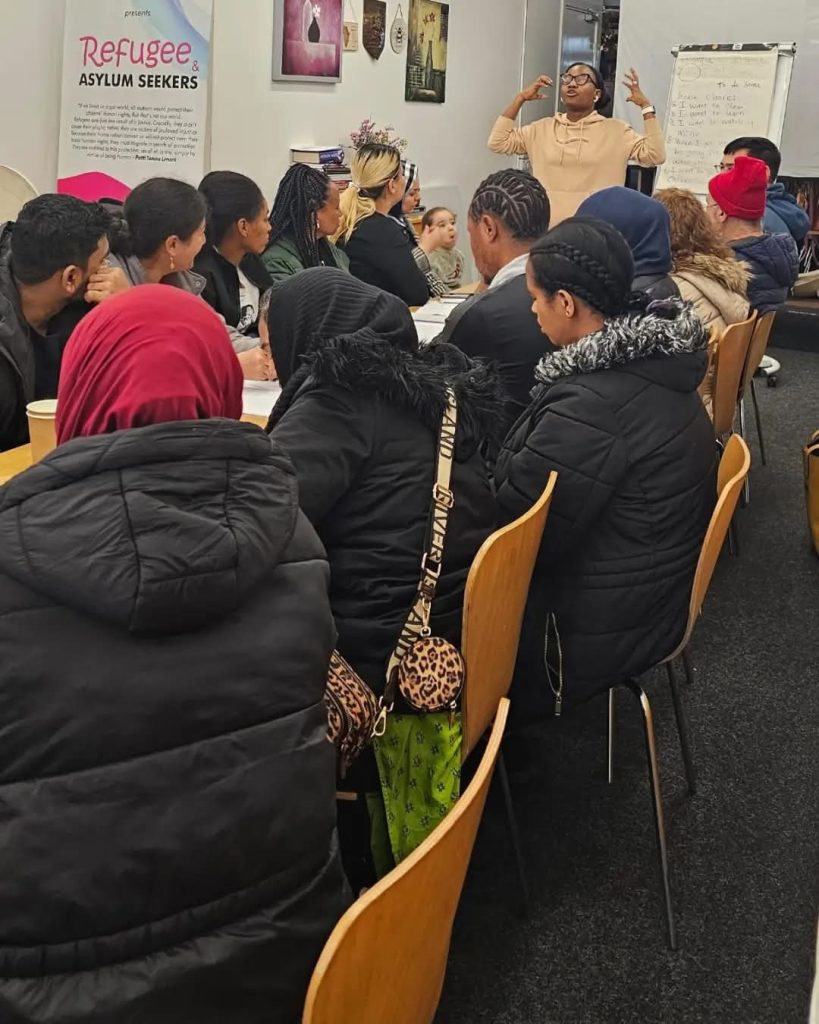
We hear this question far too often. The truth? It’s not that simple. Many survivors we support have been strategically isolated — cut off from friends, family, finances, or even their passports. They’ve been told lies about what will happen if they reach out for help: “They’ll arrest you”, “They’ll take your children”, “You’ll be deported”.
So when someone finally does walk through our doors, we don’t take that lightly. It takes unimaginable bravery to speak up, especially when you’ve been made to believe your voice doesn’t matter.
The Rochdale Reality
In Rochdale, the challenges faced by survivors are compounded by systemic barriers. The Rochdale Borough Domestic Abuse Needs Assessment highlights that domestic abuse is a gender-biased crime, with 91% of high-risk cases referred to the Independent Domestic Violence Advisor (IDVA) service being female. Additionally, 59% of these cases involved individuals under the age of 35 .
Furthermore, the Rochdale Borough Council’s Domestic Abuse Strategy acknowledges the disproportionate impact of domestic abuse on women from ethnic minority backgrounds, particularly those with insecure immigration status. These individuals often face additional hurdles in accessing support services due to language barriers, cultural stigmas, and fear of deportation .
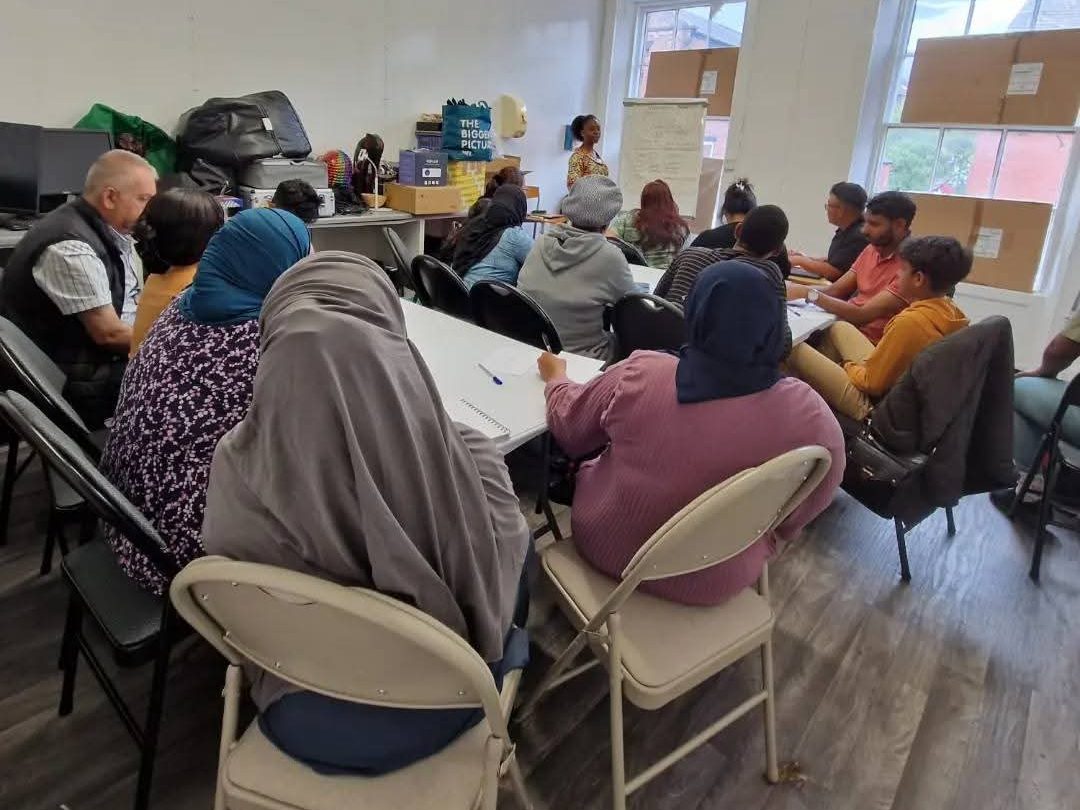
What Freedom Actually Looks Like
Freedom, in our world, starts small.
It looks like a confidential conversation with one of our trusted partners from Greater Manchester Immigration Aid Unit (GMIAU), where someone learns, often for the first time, that they have rights, not just needs.
It looks like connecting a survivor to emergency housing that doesn’t ask invasive questions or make them feel “less than” for needing help.
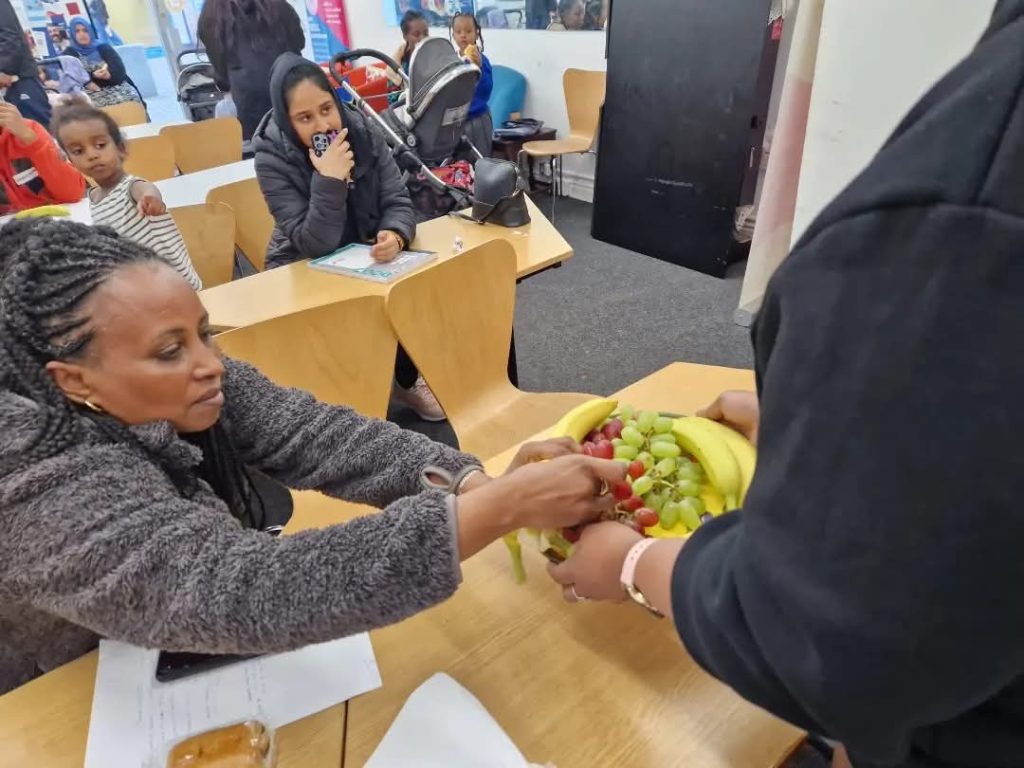
It looks like walking someone through the Domestic Violence Rule or the National Referral Mechanism, explaining in plain language how to get the protection they deserve.
And it looks like sitting side-by-side with someone, not across a desk, while they reclaim their power, their story, and their future.
No One Should Have to Choose Between Safety and Status
Let’s be clear: surviving abuse or exploitation should not disqualify anyone from safety, dignity, or justice. But the system doesn’t always get that. That’s why community organisations like ours are essential. We show up in the gaps. We help people feel seen. And we work with partners who understand that legal advice is only one part of the healing process.
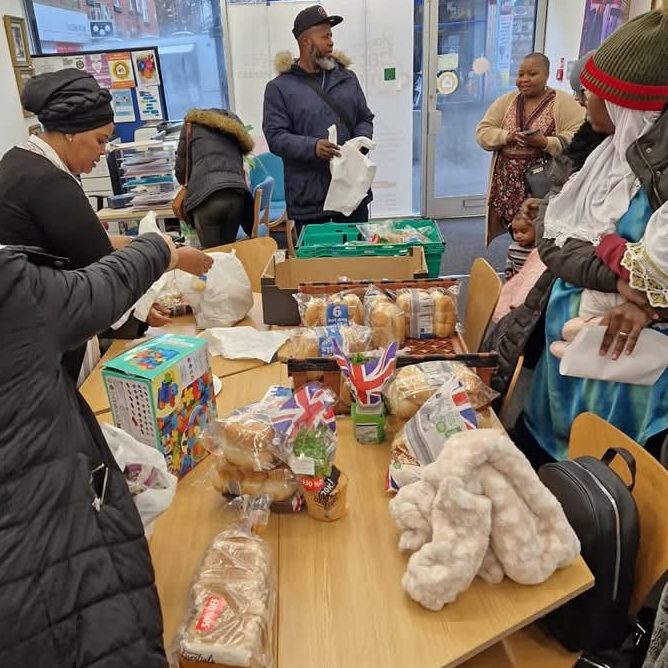
We Believe You. We’re With You.
If you’re someone reading this who is feeling trapped or unsure, please know this: you are not alone. There are people who will believe you. Who will advocate for you. Who will sit with you in the hard moments and walk with you toward something better.
And if you’re someone with the power to help; as a volunteer, a donor, a professional, or just a compassionate neighbour, your role matters too. Because every voice raised in support of survivors chips away at a system that has too often failed them.
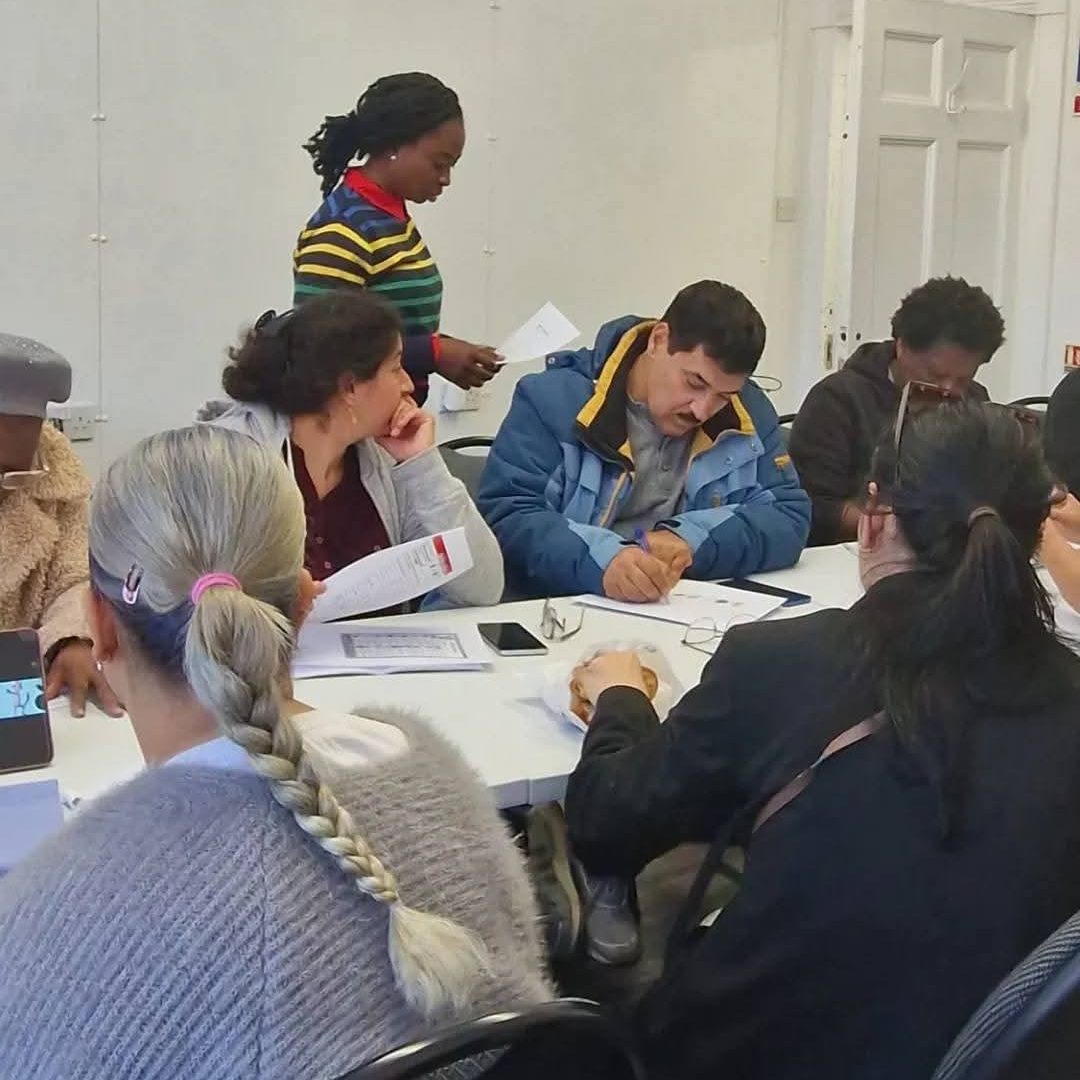
This work isn’t easy. But it’s necessary. And every time someone walks from fear into freedom, even just a few steps forward, we’re reminded why we do it.
Let’s keep making space for freedom to be more than just a dream. Let’s make it real.
As the world struggles with the largest refugee crisis since world war II, misinformation and myths about asylum seekers and refugees have spread rapidly. These misconceptions have fueled xenophobia, racism and hostility towards individuals who are simply seeking safety and protection. In this blog, we will dispel common myths about asylum seekers and refugees, and provide accurate information to promote understanding and empathy.

Myth I: Asylum seekers and refugees are a threat to national security
Reality: The vast majority of asylum seekers and refugees are fleeing violence, persecution, and war. They are not a threat to national security, but rather individuals who are seeking protection from harm. In fact, many asylum seekers and refugees have been subjected to rigorous security checks and background screenings before being allowed to enter a country.
Myth II: Asylum seekers and refugees are economic migrants who want to take advantage of western welfare systems
Reality: Asylum seekers and refugees are fleeing their home countries not because of economic gains, but rather a desire to escape harm and find safety. Many asylum seekers and refugees have in fact left behind successful businesses, careers, and livelihoods in their home countries.
Myth III: Asylum seekers and refugees are a burden on the economy
Reality: While it is true that asylum seekers and refugees may require initial support and assistance, many go on to become productive members of society. Studies have shown that refugees can contribute significantly to the economy.
Myth IV: Refugees are taking jobs away from native-born citizens
Reality: Refugees often fill labour gaps in industries that are experiencing shortages, such as healthcare, education, agriculture, and construction. Many businesses rely on refugees and asylum seeker workers to fill critical labour needs.
Myth V: Asylum seekers and refugees are not integrating into society
Reality: Many asylum seekers and refugees are actively working to integrate into their new communities. They are learning new languages, taking cultural orientation classes, and participating in community activities.
Conclusion

Asylum seekers and refugees are not threats, burdens, or economic migrants. They are humans who are fleeing harm and seeking protection away from their home countries. Bu dispelling these common myths, we can work to create a more welcoming and inclusive environment for asylum seekers and refugees.
It is essential that we promote accurate information, challenge misinformation, and advocate for policies that protects the rights and dignity of asylum seekers and refugees.
What can you do to help?
I. Educate yourself and others about the realities of asylum seekers and refugees.
II. Challenge misinformation and myths on social media and in your community.
III. Support organizations like ours that provide assistance and advocacy for asylum seekers and refugees.
IV. Advocate for policies that protect the right and dignity of asylum seekers and refugees.
Together we can create, and achieve a more compassionate and inclusive world for everyone.
On Tuesday, September 3rd, we at Caring and Sharing Rochdale came together to celebrate the life of Julie Collins, a truly remarkable woman whose dedication to serving others continues to inspire us all. Julie’s heart for humanity led her to establish Friends of Shamwari, a social event designed to support asylum seekers and refugees. Her kindness knew no limits, and her radiant spirit touched the lives of everyone she encountered.
We are deeply honored to carry forward the legacy of Friends of Shamwari in Julie’s memory. Through this initiative, we ensure that her mission of love, compassion, and support lives on, continuing to make a positive impact on the lives of those most in need. As a tribute to Julie, we proudly wore orange on—her favorite color—symbolizing the warmth and generosity she shared with the world, always giving freely without expecting anything in return.


At the funeral, our CEO, Nicky Iginla, shared a moving speech, reflecting on the immense contributions Julie made to our community. In her touching tribute, the CEO recalled how Julie, ever dedicated to her cause, had approached her to ensure the continuation of Friends of Shamwari as she prepared for retirement. Julie’s wish was for the project she had spearheaded, which involved engaging the community and supporting children, to carry on—never anticipating that she might leave us so soon.


The CEO offered a solemn and heartfelt promise to continue Julie’s important work. With a deep personal commitment, she vowed to honor Julie’s memory by leading the project as long as she could, ensuring that Julie’s passion for helping others would not be forgotten. It was a poignant moment, filled with the collective recognition that a great soul had left us, but her impact would endure.

Julie’s light shines on in our hearts, and her incredible impact will continue through the ongoing work of Caring and Sharing. Her commitment to helping others remains a source of inspiration as we strive to keep her vision alive.
Financial literacy is a crucial skill for everyone, but it is especially important for refugees and asylum seekers who are adapting to a new country and financial system. Starting a new life in a different country is both exciting and challenging. One of the biggest hurdles can be managing your finances in an unfamiliar system. Understanding how to budget, save, and use credit wisely is crucial for building a secure and stable life.
Opening a bank account is one of the first steps to managing your money in the UK. There are various types of bank accounts, including current accounts for daily transactions and savings accounts for storing money. So, you might need to make a decision about what type to open. You’ll also need identification documents like a passport or Biometric Residence Permit and proof of address, and sometimes a letter from your place of accommodation or a support organization.
Budgeting helps you keep track of your income and expenses, ensuring you live within your means. By learning to record all your sources of income and every expense, allocating money for essentials like rent, food, and utilities, and setting aside some for savings, and regularly checking your budget to adjust for any changes in income or expenses, budgeting is a key factor to keeping your spending in check.

Determine what you are saving for, such as an emergency fund or education and set savings goals. In addition to this, using a savings account to earn interest on your money is a plus.
Using credit responsibly by borrowing only what you can repay is essential to avoid debt problems. However, if you find yourself in debt, seek help immediately. Organizations like StepChange and National DebtlC ine offer free advice. Also, know the various types of credit like credit cards, personal loans, and overdrafts and ensure that you only borrow what you can afford to repay and pay your bills on time.
Explore the different welfare benefits and grants available to refugees and asylum seekers for additional financial assistance. You may be eligible for certain benefits, such as Universal Credit, depending on your circumstances and you can also be on the look out for local organizations and charities that offer financial assistance and grants.
Managing your finances wisely is key to building a stable life. By doing this, you can ensure financial stability and peace of mind. For more information and personalized advice, reach out to us Remember, there are many resources available to help you on your journey to financial literacy.
Life is a journey filled with ups and downs, and sometimes, it can feel like the weight of the world is on our shoulders. For many, challenges may seem insurmountable. But what if I told you that resilience—the ability to bounce back from adversity—can turn these challenges into stepping stones for a brighter future? Resilience isn’t about pretending everything is okay or avoiding difficulties; it’s about facing life’s challenges head-on.
Think of it as an inner strength that allows you to withstand the storms of life. It involves maintaining a positive outlook, finding meaning in adversity, and developing effective coping strategies. Here, we’ll delve deep into the essence of resilience, exploring its significance, practical ways to cultivate it, and how it can empower us all to rise above life’s obstacles.

Imagine facing a storm that threatens to uproot your life; resilience is the sturdy tree that bends but doesn’t break, allowing you to weather the tempest and emerge even stronger. The essential role resilience plays in our lives cannot be undermined and it empowers us to turn challenges into opportunities for growth and transformation.
Resilience enables you to bounce back from failures and disappointments, turning them into valuable learning experiences. When faced with obstacles, resilient individuals find ways to adapt and continue moving forward.
Life is inherently unpredictable, and the ability to adapt to new situations is crucial. Resilience equips you with the flexibility needed to navigate life’s twists and turns.
Building resilience contributes significantly to overall mental health. It fosters a sense of control and empowerment, allowing individuals to manage stress more effectively and maintain a positive outlook.

Building resilience is an ongoing process that involves intentional actions and mindset shifts. Here are several practical strategies to cultivate resilience in your life.
One of the most powerful ways to enhance resilience is by nurturing relationships with family, friends, and community members. Don’t hesitate to connect with others, reach out when necessary, share your feelings, and seek support when needed. Remember, vulnerability is a strength, not a weakness. And outside the company of your family and loved ones, join community groups or volunteer for local organizations. Building connections with others who share similar goals can create a sense of belonging and mutual support.
Change is a natural part of life, and embracing it can significantly enhance your resilience. Instead of viewing change as a threat, try to see it as an opportunity for growth. Ask yourself what you can learn from new experiences and cultivate curiosity about new situations. Being open to different perspectives and experiences can help you navigate changes more smoothly.
Having effective coping strategies in place can make a significant difference in how you handle stress and adversity. Simple techniques such as practicing mindfulness can help you stay grounded and present because even a few minutes of meditation each day can reduce anxiety and enhance your overall wellbeing, engaging in regular physical activity is not only beneficial for your body but also for your mind whether it’s a brisk walk, yoga, or dancing, movement can be a powerful stress reliever, and exploring creative outlets like journaling, painting, or playing music can provide a valuable space for processing emotions and promoting healing.
A positive mindset is a cornerstone of resilience. When negative thoughts arise, challenge them by questioning their validity. Replace them with more balanced, realistic perspectives and engage with uplifting content, whether through books, podcasts, or social media. Seek out inspirational stories that encourage resilience and hope.
Goal setting is an essential part of building resilience. Instead of overwhelming yourself with a massive goal, break it into smaller, manageable steps. Celebrate each small victory along the way to keep your motivation high. Be open to adjusting your goals as circumstances change. Resilience is about adapting to new challenges rather than rigidly sticking to a plan.

Now that we’ve explored the various dimensions of resilience, take a moment to reflect. What does resilience look like in your life? Are there specific challenges you’re currently facing that require a resilient mindset? Resilience is not just a buzzword; it’s a transformative trait that can empower you to overcome adversity and build a brighter future.
By understanding its importance and actively working to cultivate it, you can navigate life’s challenges with strength and hope. So, take that first step today! Reach out to someone in your support network, set a small goal, or practice gratitude. Remember, every little action counts in the journey of resilience. our future is bright, and you have the power within you to create it!